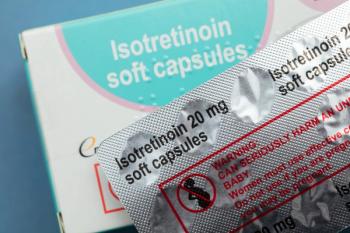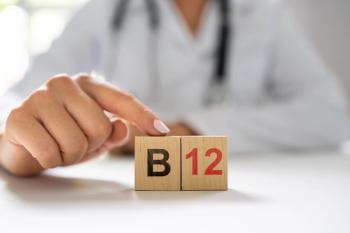
FDA Approves Vaccine for Pregnant Individuals to Prevent Respiratory Syncytial Virus in Infants
It is the first vaccine of its kind to be FDA approved, and it met multiple safety and efficacy standards through clinical trials.
The FDA has approved a respiratory syncytial virus (RSV) vaccine (Abrysvo; Pfizer) as the first vaccine approved for use in pregnant individuals to prevent lower respiratory tract disease (LRTD) and severe LRTD caused by RSV in infants, according to a press release.
Abrysvo is approved for use at 32 through 36 weeks gestational age of pregnancy, and it aims to prevent RSV in infants from birth through 6 months of age. The vaccine is administered as a single dose injection into the muscle.
The effectiveness of Abrysvo to prevent LRTD and severe LRTD caused by RSV in infants born to individuals who were vaccinated during pregnancy was evaluated in an ongoing, randomized clinical trial.
Approximately 3500 pregnant individuals received Abrysvo, compared to approximately 3500 who received placebo. The vaccine reduced the risk of severe LRTD by 81.8% within 90 days after birth, and 69.4% within 180 days after birth.
In a subgroup of pregnant individuals who were 32 through 36 weeks gestational age, of which 1500 received Abrysvo and 1500 received placebo, Abrysvo reduced the risk of LRTD by 34.7% and reduced the risk of severe LRTD by 91.1% within 90 days after birth when compared to placebo. Within 180 days following birth, Abrysvo reduced the risk of LRTD by 57.3% and by 76.5% for severe LRTD in comparison to placebo.
Additionally, the safety of Abrysvo was evaluated in 2 studies. In 1 study, approximately 3600 pregnant individuals received a single dose of Abrysvo and approximately 3600 received a placebo. In the second study, around 100 pregnant individuals received Abrysvo and approximately 100 pregnant individuals received a placebo.
The most common adverse effects reported by individuals who received Abrysvo were pain at the injection site, headache, muscle pain, and nausea. Although not commonly reported, a dangerous hypertensive disorder known as preeclampsia occurred in 1.8% of pregnant individuals who received Abrysvo compared to 1.4% who received placebo.
“RSV is a common cause of illness in children, and infants are among those at highest risk for severe disease, which can lead to hospitalization,” said Peter Marks, MD, PhD, director of the FDA’s Center for Biologics Evaluation and Research, in a press release. “This approval provides an option for health care providers and pregnant individuals to protect infants from this potentially life-threatening disease.”
Reference
U.S. Food and Drug Administration. FDA approves first vaccine for pregnant individuals to prevent RSV in infants. News release. Accessed August 22, 2023. Published August 21, 2023. Accessible at
Newsletter
Stay informed on drug updates, treatment guidelines, and pharmacy practice trends—subscribe to Pharmacy Times for weekly clinical insights.







































